ADSactly Literature: José Antonio Ramos Sucre or the transmuted death
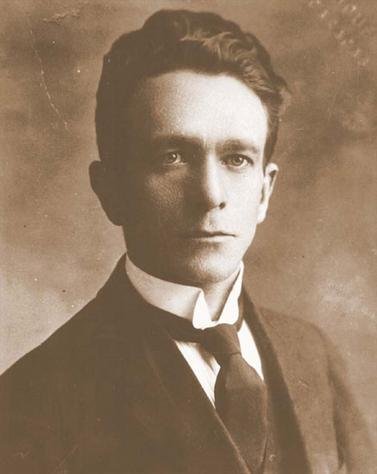
José Antonio Ramos Sucre or the transmuted death
Dear readers, I would like to share with you a critical-essay work on one of the most important writers for Spanish-speaking literature of the 20th century, José Antonio Ramos Sucre (Cumaná, Venezuela, 1890 - Geneva, Switzerland, 1930), who was born on June 9 and died on June 13, that is, on the dates we are passing through.
He was the author of a strange work, out of place for its time and place, written almost entirely in the form of a poem in prose, by very few cultivators in general, with all the elaboration of his broad humanist and literary intellectual training. The transcendent literary value of his poetic work was claimed late, and for a few decades it has been translated into several languages and begun to be studied in universities and literary research centres in different countries.

I've felt the stupor and happiness of death.
Ramos Sucre
The writer is the one who writes so he can die
and who gets his power to write
of an anticipated relationship with death.
Maurice Blanchot
An everlasting presence
Inseparable duality of life and death. The cornerstone on which human beings have built their culture, as Freud well noted in his studies. In spite of changing face and clothing, death permeates the human course, and although sometimes expelled from the concept of life in some moments of history, it returns to enter us through the window. It is an immanence, an inexorable attribute of the human. In this regard, Cioran (1977), that lucid heterodox, reflects:
[...] there is something that comes from ourselves, that is ourselves, an invisible reality, but internally verifiable, an unusual and everlasting presence, that can be conceived at any moment and that we never dare to admit [...]: it is death, the true criterion.
Meditation on death is at the heart of life's conduct. It has come to dominate the thought and work of philosophers and poets throughout the history of our culture. Philippe Ariès, in his study Man before death, gives us an account of the complex evolution of this thought from the earliest times to the present day. It is worth mentioning, for example, the meditation of a religious man like Calvin (16th century), who expresses in his words a conception of death with features that are very contemporary:
We are horrified by death because we apprehend it not as it is in itself, but as sad, macillating and repugnant [...] We flee before it, but it is because [...] we do not take the trouble to look at it. (quoted by Ariès)
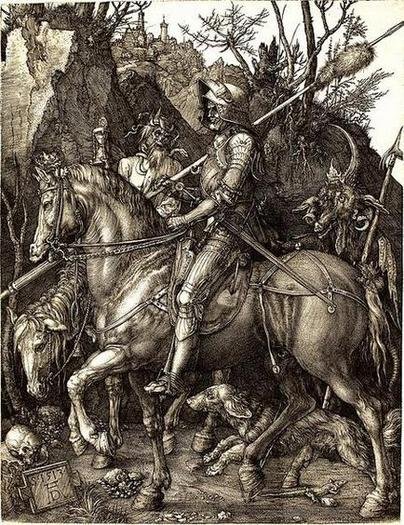
This living with death in mind will be found in different authors and in different moments of culture. It will reach a fundamental expression and strength in the romantic period, when death and sleep occupy the poetic and vital marrow of its most conspicuous representatives, as we can see in the following fragment of Lamartine (quoted by Ariès):
I salute you, O death, celestial liberator.
You do not appear to me under this dismal aspect
Who for a long time has lent you fear or error...
Your forehead is not cruel, your gaze is not perfidious.
For help from sorrows a gracious God guides you;
You do not annihilate, you liberate: your hand
Celeste messenger, carry a divine torch...
Death, then, is personalised, clothed with a liberating and saving sense. This sense will survive, acquiring new biases in poets such as Baudelaire, Rimbaud, Lautréamont and Mallarmé. It will be an essence rediscovered in life, in the self, to the point of nesting in the very challenge of creation as an agony of the work. An example in Baudelaire (quoted by Ariès) illustrates this:
It is Death that comforts, alas, and makes us live.
It is the goal of life and it is the only hope,
that like an elixir takes us up and intoxicates us
and gives us courage to walk into the night...
This definitive presence of death, the immanence of the human, is summed up by Rilke, the maker of a work biased by death, in a sentence of moving poetic tempera: "The great death that each one carries within himself" (quoted by Blanchot).
A work inhabited by death
Criticism has pointed to death as a capital dimension of the work of the poet Ramos Sucre. It constitutes a wide and diverse semantic field where the thematic dimension of the work interacts with the author's personality. Thus, Guillermo Sucre indicates that "prefiguring, dreaming or desiring death is one of the dominant experiences in this poetry"; or as Víctor Bravo puts it: "The poet penetrates the space of death through writing".
Death, flight and exile make up the structuring and thematic axes of Ramos Sucre's work, as formulated by Rosanna Boadas. They form a dialectic that seems to coincide with what Cioran (1984) meditated in this aphoristic phrase: "[...] to turn towards death in order to settle in it as a citizen of a new exile". The stories, characters, spaces and voices of his poems/stories constantly rewrite, with the rhythm of a poetic monotony, the obsession of death.
Rosanna Boadas has made this point:
(...) death is not an anguishing reality but the proclamation of a way of transcending. Sorrow lies on this side of the abyss. The space over there comes to represent the site of victory over death, which is life itself.
Ramos Sucre explores and prefigures the possible territory of death from a hallucinated subjectivity. He imagines the reaction and physiognomy of a transcended spirit, its transit along the path of the ungraspable, the primeval non-place for the rested stay.
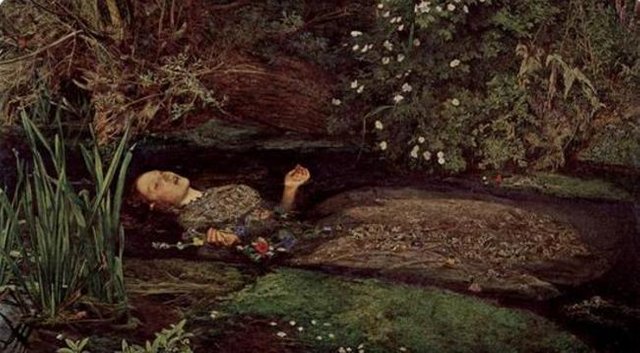
Source
Death: metaphor of Ramos Sucre's writing
The generality of critique, when dealing with death in the work of Ramos Sucre, has focused its attention on a thematic sense that would speak of the poet's conception of life. Although this approach is valid and its formulation certain, other connotations and senses to the image of death can be found. It is one of those senses that we will try to capture from now on. The poem "The lapidary", from his book The forms of fire, has been chosen for this purpose:
The feeling of rhythm directed the acts and speeches of the woman. Dante would have pointed out the value of magic figures by criticizing the date of her birth and the date of her death.
They returned their ashes from exile in a secular country. Love, from the taciturn ship, shed a bouquet of lilies in the sea of the funeral waves.
I saw from a height the arrival of his relics and the escort of the mourners and I withdrew to join the duel.
I drew by chisel a secret sign on the forehead of a volcanic stone, respected in the middle of the erosion of the coastline and next to the port of return.
The sign includes my name and that of the deceased and has been carved with the exquisiteness of a historical handwriting. I have invented it in order to awaken in those to come, stubborn in making sense, an ineffable yearning and a hopeless discontent.
The choice of the title of the poem requires the voice of the speaker. It is about a character: a lapidary. The voice of the tombstone maker places us from the beginning before a situation linked to death.
But who dies in the story presented in the text? Aware of the ambiguity and indeterminacy characteristic of Ramos Sucre's texts, we might dare to say: it speaks to us of the death of a woman. We are given the data to identify it: this woman has been related to Dante, since he "had pointed out the value of magic figures by criticizing the date of her birth and the date of her death". If we know something of Dante Alighieri's work, we know that a woman occupied his poetic vision: Beatriz; in her book Vida Nueva, largely autobiographical, built on the basis of mathematical symbols of Kabbalistic resonance (3 and 9, as she will also do in Divine Comedy), sings of love for this woman and the presentiment of her death.
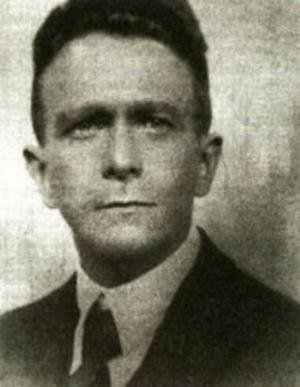
It is worth noting in this regard how Ramos Sucre returns, once again, to the rapprochement between love and death, as he had already done in poems such as "Prelude" and "The Tribulation of the Novice", to cite just two of the many examples that populate his work.
But this is not what we are interested in considering in the poem, but what can be perceived in its final segments. This lapidary, observer of death, sculpts "with the exquisiteness of a historical letter" "a secret sign". Here we must point out the game that Ramos Sucre plays with the meanings of the word "lapidary", which, according to the DRAE, also alludes to the profession of engraving precious stones. The inscription is characterized by "exquisiteness" and is made "on the forehead of a volcanic stone".
And the voice tells us that the sign includes its name and that of the dead. The lapidary, if retracted from joining the duel, is inscribed in the unity with death. Somehow the death of the character can also be postulated.
All this allows us to formulate a double metaphor, in which the lapidary would be the image of the writer and the work of that image of writing, in particular, of the writer Ramos Sucre and of his writing of and for death.
Like the lapidary, Ramos Sucre has engraved a secret sign, a hermetic work, pierced by mystery, which even today awakens "an ineffable yearning and a hopeless discontent". A work, as he himself referred to it, worked with an accented and refined sense, with a demanding and hard effort ("with chisel strokes"), like the craftsman who carves a precious stone. A work engraved on the hard matter of a severe and isolated life, alien to the "erosion" of the world and in permanent search of a journey, of an interminable exile, although waiting for the return, as located in "that port of return".
This writer constitutes his work for eternity ("I have created an immortal work", Ramos Sucre declares in a letter to his brother Lorenzo), and its inscription on it implies the act of death, the assumption of a common destiny that makes it a "secret sign".
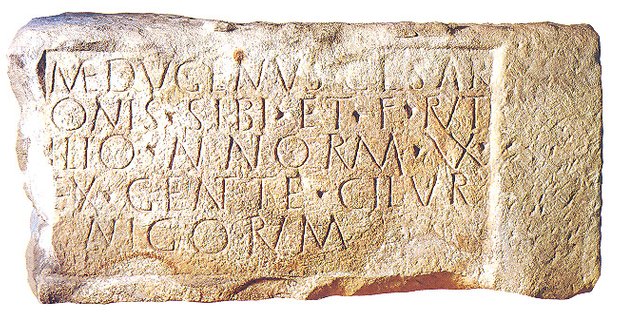
Source](
 )
)The poet departs from the world to write, and in the making of his work transmutes the materials of his life. Exiled, he dies to normal life, transfiguring the work, transfiguring into the work. Blanchot says: "true death becomes true in the intimacy of transmutation".
Like Mallarmé, Kafka and Rilke, Ramos Sucre creates a work that is a metaphor for his death, because in it he is annihilated and transmuted into a secret sign. His writing involves an experience of death, foreign and his own, understood in the same sign.
(Note: There are international Spanish editions of Ramos Sucre's work such as the Fondo de Cultura Económica (Mexico), which can be found at link and in English here. You can see more about Ramos Sucre at link.
Bibliographic references
Ariès, Philippe (1987). Man in the face of death Madrid: Taurus.
Blanchot, Maurice (1969). The literary space. Buenos Aires: Paidos.
Boadas, Rosanna (1989). Ramos Sucre and the space of the accursed poet. Caracas: mimeographed edition.
Bravo, Victor (1981). Ramos Sucre: la escritura como itinerario hacia la muerte, in Ramos Sucre before the critics. Caracas: Monte Ávila.
Cioran, E.M. (1977). Breviary of rottenness. Madrid: Taurus.
Cioran, E.M. (1984). Silogisms of bitterness. Caracas: Monte Ávila.
Ramos Sucre, José A. (1980). Complete work. Caracas: Ayacucho Library.
Sucre, Guillermo (1985). *The mask, the transparency. Mexico: FCE.
Written by @josemalavem
Click on the coin to join our Discord Chat

Witness proposal is here:
Go To Steem Witness Page
In the bottom of the page type: adsactly-witness and press vote.

Use small letters and no "@" sign. Or, click here to vote directly!
Thank you!
Ramos Sucre is one of the most important poets of Venezuela and Hispanic Literature. His life, so limited and misunderstood, his readings, the era in which he had to live, made Ramos Sucre a poet ahead of his time. To call death feminine and as his beloved is such a rare characteristic that it speaks to us of the elevated thought of this poet. When we review his work and read about his innumerable suicide attempts, we understand that this fascination for death was in his veins. Unfortunately, although he is an internationally recognized and appreciated poet, in Venezuela he has not been given the courage he deserves. A good tribute to this anniversary week by José Antonio Ramos Sucre, @josemalavem.
Thank you for your comment, always so precise and enriching, @nancybriti. Incidentally this post is published on the day of the death of the poet Ramos Sucre, almost a magical coincidence. For this poet celebrating life was almost celebrating death, because he had a clear conscience of how one depends on the other. Curiously - as you must know, although other readers of this blog did not attempt suicide (by overdose of antidepressant medication) was on June 9, ie the day of his birth, but died four days later.
Nuestro gran Mariscal de Ayacucho y poeta de mi cuidad.
Posted using Partiko Android
I think you're confused, @wendyth16. Our Grand Marshal of Ayacucho was called Antonio José de Sucre and the poet was José Ramos Sucre. The poet's mother was the grand niece of the Grand Marshal of Ayacucho.
It's like it says, @nancybriti. The Grand Marshal of Ayacucho is Antonio José de Sucre (1795-1830). I speak of the poet, José Antonio Ramos Sucre (1890-1930), who had family ancestry (by his mother, Rita Sucre) with the independence hero, but he was a poet of the early twentieth century.
To listen to the audio version of this article click on the play image.

Brought to you by @tts. If you find it useful please consider upvoting this reply.
Interesting Post
You present writing that is very pretty. also the choice of diction made by Ramos Sucre. As a poet he knew that the death that people often feared would only bring him closer. Readers are invited to get to know more closely with death. He always has a way to express beauty, even about death can be a discussion that causes meaningful beauty.
then when you read the navel you feel you're dealing with a beautiful view in the morning under the foot of the mountain. There is coolness that makes us happy.
In contrast to reason and our understanding of death and death. We often think death will put an end to everything we are living. Death makes the wheels of the world stop instantly.
But by reading and deepening the poetry of Ramos Sucre we will be more struck by death, who will surely come, like or not.
thank you @josemalavem
thank you @adsactly
thank you Steemit
warm regard from Indonesia
Thank you for that comment, @rokhani. Sometimes I find it a little difficult to follow you because of the limitations of language translation. I must tell you that I really liked your final phrase: "But by reading and deepening the poetry of Ramos Sucre we will be more struck by death, who will surely come, like or not.", which I think is part of the meaning proposed in my post. Greetings.
#wOW THATS GREAT . KEEP it up
It's another day, a beautiful day and no boredom with steemit..... Always keeping it real right here.
Talent is a natural gift from God.... Any profession that you are into and nobody taught you how to do that, is a natural gift from God, called "Talent". Talent is far different from knowledge........ #Knowledge is a fact of knowing about something; general understanding or familiarity with a subject, situation etc. it is also a state of been informed or made aware of something.
Talent is not like that.... #Talent is simply the desire or inclination for something, it is a natural ability or skill.
I'm been called the multi talented and i am not been called that for nothing....
Drawing with a pen is not knowledge, cause back then in school we're taught to draw with a pencil. But look at me @iykeconero i draw with a pen... that's called talent.
I don't just draw for drawing sake.... I draw for it's in me.
My parent and some people tried to stop me from drawing and singing to face my education to acquire knowledge which i gave in for like 3 years without doing the things i love doing. After that 3 years i took my pen again and started drawing and which my drawings were far more better than before. Then i found out that what is in you, is in you and it can never be taken away.
TALENT IS TALENT............. AND............ KNOWLEDGE IS KNOWLEDGE
I call it Steembike..........
All drawing and no partying, makes Iykeconero a dull boy
Let's dance
SF5 @iykeconero
What time is it......?
I guess it's party time........
¿?
I always heard that human beings are afraid of death because represent the unknown, here in Venezuela we say in a funny way that "nobody has returned from death to tell us what it is about". Excellent reference you make of this great writer @adsactly
I thank you for your comment, @cellomusic91. I believe that death is the great theme of the concern and reflection of humanity of all times, regardless of whether we recognize it or not. The poet Ramos Sucre assumed it without obstacles from his inner being.
Hi, @adsactly!
You just got a 0.31% upvote from SteemPlus!
To get higher upvotes, earn more SteemPlus Points (SPP). On your Steemit wallet, check your SPP balance and click on "How to earn SPP?" to find out all the ways to earn.
If you're not using SteemPlus yet, please check our last posts in here to see the many ways in which SteemPlus can improve your Steem experience on Steemit and Busy.
@josemalavem, Some Literature pieces and Poetries really moulded the thoughts to look particular subject in different way or to look towards this world in different way.
In my opinion Poetry sometimes connects with more Spiritual Levels because the emotions comes from very deep levels.
Posted using Partiko Android
Giant José Antonio Ramos Sucre !! Poet born in the city of Cumaná - Venezuela. Thank you for this beautiful contribution you make @josemalavem in @adsactly to spread the work of this writer. Ramos Sucre was perhaps a man who was broken with pain and transformed that suffering into beautiful letters. I can compare it with Frida Khalo, he in writing and she in plastic. Sincerely, thank you very much for this publication